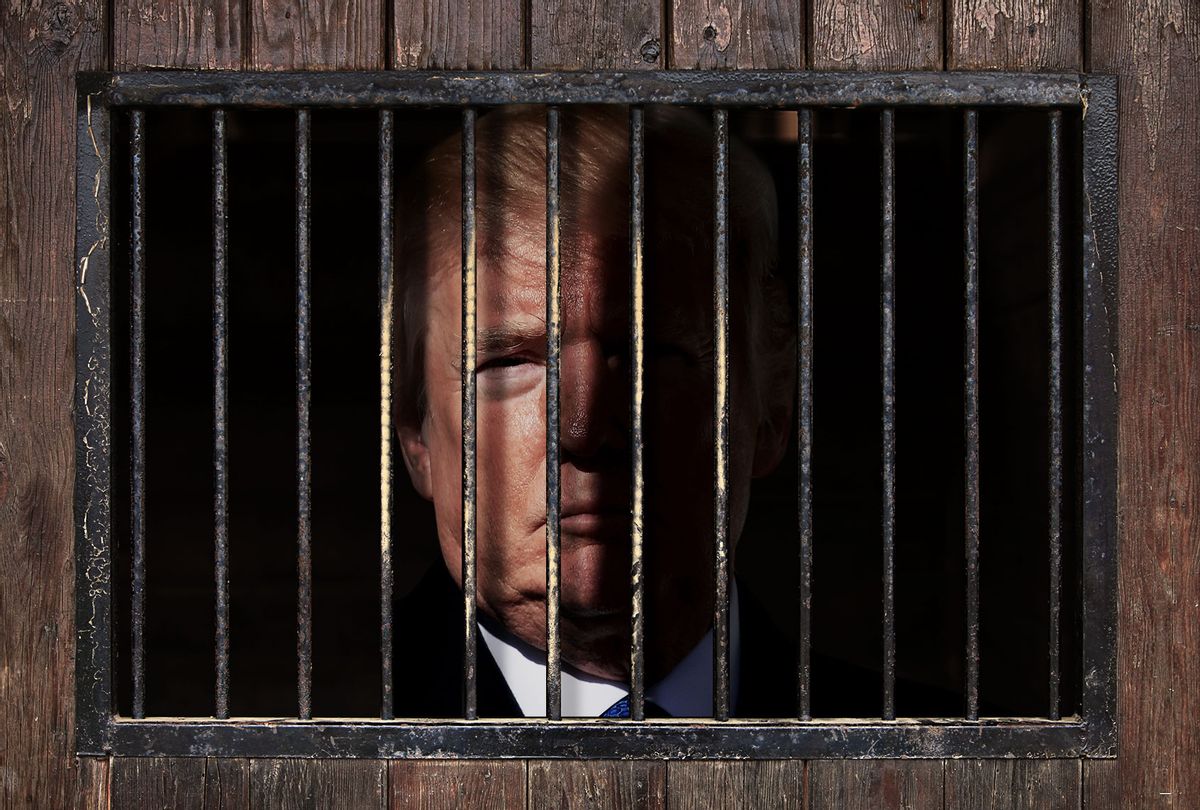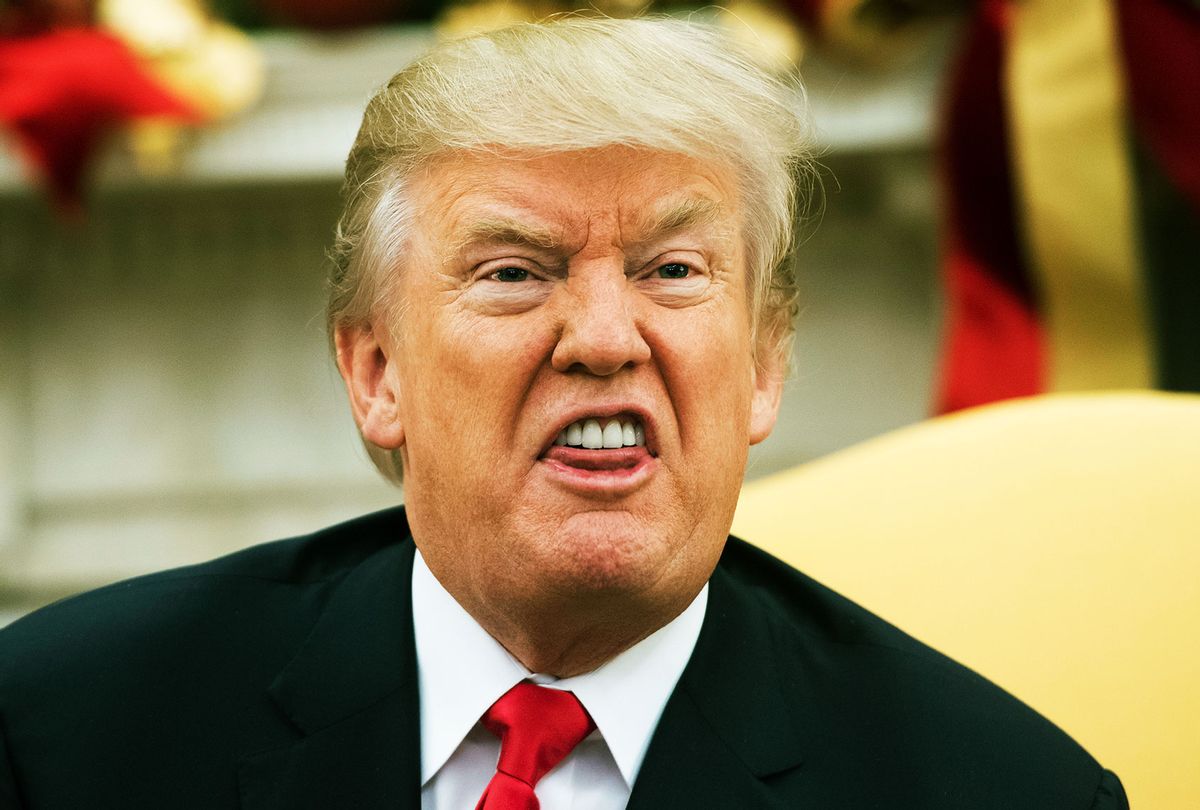- Jul 31, 2018
- 4,415
- 4,091
- 136

What happens if an ex-president goes to jail (hypothetically speaking)? It wouldn't be pretty
What will happen if a certain former president faces a criminal trial? History's answer is clear: Nothing good
What happens if an ex-president goes to jail (hypothetically speaking)? It wouldn't be pretty
What will happen if a certain former president faces a criminal trial? History's answer is clear: Nothing good

The United States has never had a president go to prison. Neither a sitting president, nor a former one. Arguably there are a few who should have — although that's another matter.
Donald Trump could change that. Perhaps that's not surprising: Trump will already be remembered by history as the first president to be impeached twice, the first president to refuse to accept losing an election, the first president to lack any prior political or military experience and one of five presidents to be elected without winning the popular vote. He has racked up questionable distinctions like Tom Brady wins Super Bowl rings.
Now Trump may face jail time for alleged financial crimes in New York — or his efforts to overturn the 2020 election in Georgia, or his speech to the Jan. 6 rioters. Given his pattern of ethically iffy business dealings and ripping off the taxpayers, as well as his shady actions in Russia and Ukraine, something completely unforeseen could also arise during current investigations that lands him in jail.
At any rate, if Trump goes to prison, it will be a first in the history of this country. What, if anything, does that say about the state of our democracy?
We can start by looking at the closest equivalents to Trump's situation, which occurred shortly after the Civil War. Without question the most volatile such case was the potential trial of Jefferson Davis, who had been president of the Confederacy and intended to argue that he did nothing illegal by siding with Mississippi once it seceded. (Whether the Confederate States of America counts as a real nation, and Davis as a real president, is a contested question.) Given that the Civil War had ended only a few years earlier, it is entirely conceivable that Davis' trial would have sparked violence whether he was convicted. Fortunately for him, President Andrew Johnson pardoned Davis and other former leading Confederates for the crime of treason, so we don't know how such a trial would have played out.
A lesser known case — involving an authentic, no-doubt president — is that of John Tyler, who was president from 1841 to 1845, following the death of William Henry Harrison. No one ever accused Tyler of dishonesty, but he sided with his home state of Virginia when it seceded from the Union, in 1861, serving in various Confederate legislative bodies. Tyler died of a stroke early in 1862, three years before the Civil War ended, so he was never held legally accountable for his actions and there's no way to know how events would have played out. Tyler offers, however, the only clear example of a former U.S. president committing treason. (Until now, some would say.)
Around the same time that Jefferson Davis faced an uncertain legal fate, the president who pardoned him, Andrew Johnson, became the first president to be impeached, in his case by a Republican-controlled Congress that opposed his lenient policies toward the conquered South. But Johnson was charged with no crime after leaving office, whereas Richard Nixon — who resigned before he could be impeached — probably would have been had Gerald Ford not pardoned him. Bill Clinton, the second president to be impeached, was accused by his enemies of all kinds of imaginary crimes, but never faced any serious threat of criminal prosecution for any aspect of the Monica Lewinsky scandal.
So American history provides no clear or useful parallels, and we have to cast the net more widely — still without finding any obvious similar instances. One thing we can say is that a criminal conviction wouldn't necessarily end Trump's political career, and another is that the chances of an actual head of state literally winding up behind bars appear very low. Former Italian prime minister Silvio Berlusconi was convicted of tax fraud in 2013 — also one of Trump's more plausible crimes — and served his "prison sentence" by doing unpaid community work because of his age. Despite his conviction, Berlusconi remains a powerful figure on the Italian right and eventually returned to politics, winning election to the European Parliament in 2019.
One case very much in the news is Israel, where Prime Minister Benjamin Netanyahu has held power for the last 12 years (after also serving as prime minister in the late '90s). He was indicted in 2019 for accepting bribes, fraud and breach of trust but has refused to leave office, clinging to power through several indecisive elections thanks to the loyalty of the Israeli right. With a new coalition government reportedly emerging this week that could end Netanyahu's tenure, the danger of conviction and prison time is now real.
Former French prime minister François Fillon could well be heading to prison — but even in France, this isn't a huge story. (In the French political system, the president holds executive power and the prime minister is perhaps closer to the House speaker in the U.S.) An old-school center-right conservative, Fillon was allied with former President Nicolas Sarkozy and was was briefly seen as the frontrunner in the 2017 presidential election (eventually won by Emmanuel Macron). After Fillon was charged with embezzlement, his political fortunes collapsed, and last year he was finally convicted of fraud and misusing funds. He was sentenced to five years in prison, with three of them suspended, and is currently appealing his sentence.
What lessons have we learned about the prospect of Donald Trump ending up in a prison jumpsuit? Pretty much none. Trump is perhaps vaguely similar to the examples of Berlusconi, Netanyahu and Davis in that he has a passionate following, and leads a movement that is unwaveringly devoted to him as an individual. As with Berlusconi and Netanyahu, his supporters are unlikely to abandon him even if he is indicted or convicted. If anything, a criminal trial might turn him into a martyr, and increase his followers' sense persecution, emboldening them to do who knows what.
John Tyler, Andrew Johnson, Richard Nixon and Bill Clinton never commanded that kind of slavish devotion. Nothing even close.
Consider also that there's no legal or constitutional impediment to an eligible citizen running for president while incarcerated. Trump could orchestrate a political resurrection from a prison cell, being "restored" to what his followers deem his rightful place either by legitimately being elected or (far more likely) because the recent wave of voter suppression laws enacted by Republicans create a situation where he can't lose. Much as Hitler proclaimed his ascension to power as a vindication of the nine months he served in prison after the Beer Hall Putsch, Trump's miraculous election-from-prison would be embraced by his followers as proof that it was all worth it. Most of them would shy away from the Hitler parallels, of course — but some, if QAnon rhetoric is to be believed, may not.
If Trump is actually put on trial, it will become a spectacle unlike any other in American history. Any possible verdict — acquittal, conviction or mistrial — will be received by his supporters as a great victory. No matter what happens, such a trial would serve as a flashpoint for a far-right, anti-democratic movement the likes of which has never before existed in this country. On balance, that sounds really bad.
Last edited:




